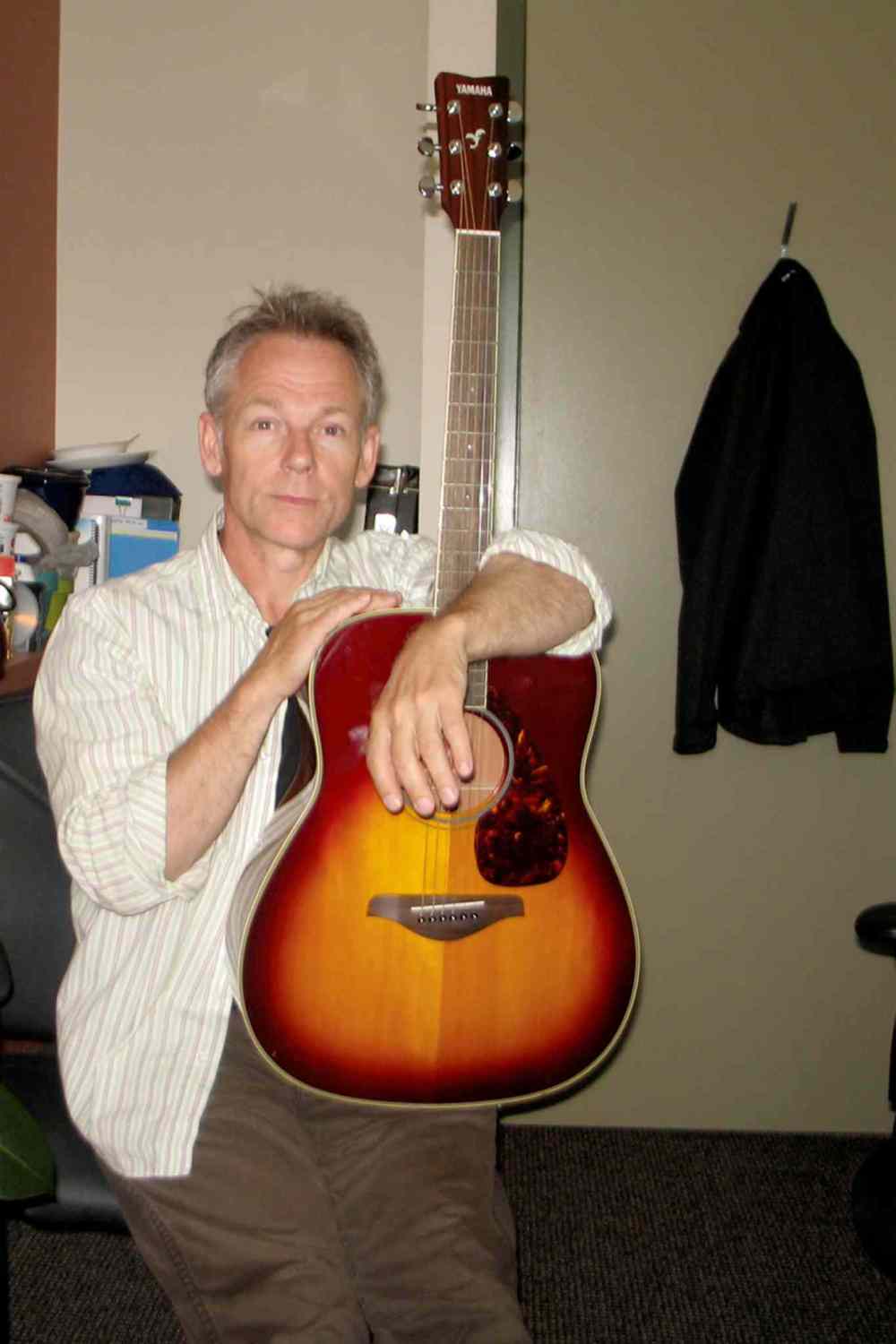Healing through music
Advertisement
Hey there, time traveller!
This article was published 19/08/2014 (4101 days ago), so information in it may no longer be current.
Jeffrey Hatcher believes music can be medicine.
The North Point Douglas resident works as a private contract therapist under the banner Sound Future Music Therapy and Counselling Services. Hatcher, who is also a clinician at New Directions, uses music and music elements to promote and enhance physical and mental health.
“What exactly music therapists do depends more on the therapist themselves and even more on the population they’re working with,” said Hatcher, 57, who studied music therapy at Capilano University in Vancouver and earned a master’s in Counselling Psychology from Simon Fraser University in Burnaby, B.C.

“A lot of music therapists work with young children with developmental delays, kids with communication issues or difficulty with memory, attention, focus and concentration.
“A lot of music therapists are working with seniors in dementia care. There’s a research lab at Colorado State University that studies the effects of music therapy techniques on people with Parkinson’s and stroke. Several of my clients have a motor vehicle crash-generated brain injury.”
Hatcher, a former professional musician, played in Winnipeg new wave band The Fuse in the late ’70s and Toronto roots rock group Jeffrey Hatcher & The Big Beat in the ’80s. In the early ’90s, he played alongside the late Billy Cowsill in Vancouver country-infused rock band The Blue Shadows.
However, Hatcher is quick to point out that music therapy is not simply him playing music to a client while they lie down on a couch. Instead, music therapy involves the patient actively participating in music. For example, Hatcher said he has facilitated songwriting sessions with recovering drug addicts and prisoners, and recently, people living with schizophrenia.
“It’s really eye-opening to watch them (schizophrenics) communicate with me and with each other musically when they have such a hard time engaging with the world otherwise,” Hatcher said.
“It’s about feeling accomplished in doing a new activity and the pleasure in listening and discovering that they can listen to and respond to someone else’s music. They’re part of a group, part of something that involves other people, when usually they feel apart from the world.”
When working with the mentally ill, music enables Hatcher to tap into his client’s emotions, but he said with brain injury patients, the emotional side of their life isn’t his main focus.
“What I do with them probably looks more like occupational therapy,” Hatcher said. “You’re taking the physical faculties they have, whatever motor movements they have, and using engagement with music to maximize those things so they feel like reaching further or doing something for longer.”
Hatcher takes donations of instruments to give to his clients. Donations can include harmonica, stringed instruments such as guitar, banjo, ukulele, mandolin and violin and small percussive such has tambourine and hand drum.
To donate an instrument, contact Hatcher at jhhatcher@mymts.net




